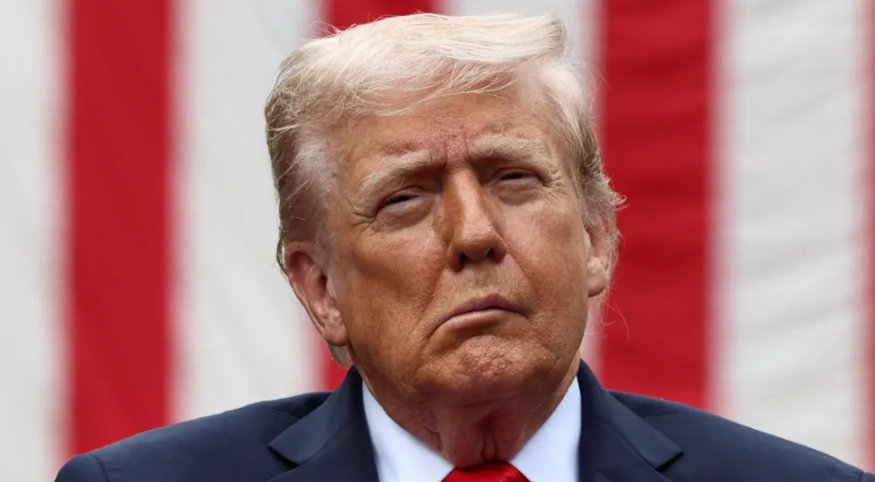Best Free Resources for Traders in 2025: From Charts to AI Alerts
December 01 , 2025

Donald Trump warns he is prepared to sanction Russia if NATO allies stop buying Russian oil. What does this mean for global energy and geopolitics?
Former U.S. President Donald Trump has once again placed himself at the center of global geopolitical debates, declaring he is “ready” to sanction Russia if NATO nations agree to halt the purchase of Russian oil. The statement highlights the ongoing tension between Western powers and Moscow, while raising important questions about energy security, alliance unity, and Trump’s foreign policy priorities.
Energy trade has long been a linchpin in the delicate relationship between Russia and Europe. Despite years of sanctions and mounting pressure from the West, many NATO countries remain dependent on Russian oil and gas to fuel their economies. Trump’s remarks underscore the critical importance of energy independence, but they also reveal the difficulty of aligning allies on such a high-stakes issue.
Cutting off Russian oil would deliver a significant economic blow to Moscow. However, for NATO members already battling inflation and volatile energy prices, the short-term costs could be politically risky. Trump’s call for unity highlights the tension between strategic necessity and domestic pressures.
Throughout his political career, Trump has often favored economic pressure over military confrontation. His latest remarks reflect this approach. By suggesting sanctions as a tool to punish Russia, Trump is signaling both toughness toward Moscow and pragmatism about avoiding direct conflict.
Sanctions, however, are only as strong as the coalition behind them. A unilateral U.S. move would have limited impact compared to coordinated restrictions across NATO and the European Union. For Trump’s strategy to succeed, he would need strong buy-in from leaders in Berlin, Paris, London, and Warsaw — a challenge given the uneven energy dependencies within Europe.
NATO members face a dilemma. On one hand, standing united against Russia aligns with their security commitments, particularly as the Ukraine conflict continues. On the other hand, many European economies still rely heavily on Russian energy imports. Countries like Germany and Hungary have historically resisted cutting ties too abruptly, fearing energy shortages and soaring costs for households and industries.
Trump’s remarks could pressure NATO allies to accelerate their transition toward alternative energy sources, including renewables, U.S. liquefied natural gas (LNG), and Middle Eastern oil supplies. Yet, such transitions are not immediate and carry their own geopolitical complications.
Trump’s statement sent ripples through both political and financial circles. Energy markets are particularly sensitive to rhetoric that suggests new sanctions or supply disruptions. Even the suggestion of NATO halting Russian oil imports could drive up prices globally, affecting everything from transportation costs to household utility bills.
Russia, for its part, has sought to pivot energy exports toward Asia, with countries like China and India becoming key buyers of discounted Russian crude. Sanctions from NATO may therefore deepen Moscow’s reliance on these partners, reshaping global trade flows in ways that could outlast the current crisis.
Trump’s remarks also play directly into U.S. domestic politics. By taking a strong stance against Russian energy, he positions himself as both tough on Moscow and as a leader capable of pushing NATO allies into greater alignment. This framing could resonate with voters ahead of the 2024 election, particularly those who believe America should play a stronger role in global leadership.
At the same time, critics argue that Trump’s past approach to Russia was inconsistent, with moments of both confrontation and accommodation. His latest comments may be designed as much for political theater as for practical policy.
Whether or not NATO nations heed Trump’s call, the discussion highlights a critical truth: energy security and geopolitics are inseparably linked. As Russia continues its war in Ukraine and NATO faces the challenge of unity, the question of oil and gas supplies will remain a central battlefield.
If NATO does decide to halt Russian oil imports, sanctions would likely follow swiftly — potentially reshaping both European economies and Moscow’s global strategy. If not, Trump’s warning may remain just that: a gesture of intent that underscores his readiness to re-enter the global stage.
Trump’s statement that he is “ready” to sanction Russia if NATO stops buying Russian oil underscores the intersection of energy, politics, and security. It is a reminder that the decisions of today’s leaders will not only influence the outcome of the Ukraine war but also reshape global energy markets for years to come. For NATO, the choice is stark: endure the pain of energy transition now or continue to grapple with dependence on Moscow.
#Trump #Russia #NATO #OilSanctions #EnergyCrisis #GlobalPolitics #UkraineWar